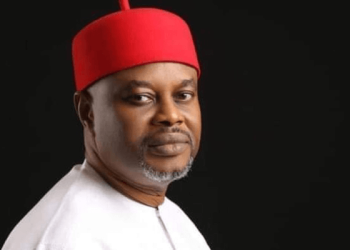The inauguration of a National Council on Micro, Small and Medium Enterprises (MSMEs) headed by Vice-President Namadi Sambo is a good decision of the Federal Government aimed at building this sector properly for national, social and economic growth and development. Indeed, President Goodluck Jonathan’s point that the growth of MSMEs is very important in any nation that aspires toward self-sufficiency because they are innovators, wealth creators, and employment generators cannot be more accurate. There are indeed sound reasons for greater government attention to, and support for the SMSEs defined by the Central Bank of Nigeria (CBN) as businesses with asset bases of between N5 million and N500 million, and staff strength of between 20 and 300.
Small businesses, as cottage industries, not only have a much longer history than big business and large corporations; they have often been the beginning and nurturer of the latter. And, they have consistently survived side by side with big businesses, and even supported them either as provider of services or of such goods as component parts. It is estimated that small businesses are by far more in number than large corporations and, in totality employ many more people. Besides, for the ‘economic inclusiveness’ reason that they keep many otherwise idle hands gainfully employed, for the practical on-the-job experience they offer, and for the purpose of social stability, small businesses are the real engine of a nation’s development.
However, commendable as the newly inaugurated council to drive the MSME sector is, it is cold comfort until and unless the sector operators, the men and women in the business, feel the impact of government’s good intentions. This impact must reach them in affordable credit facility, in improved infrastructure, stable economic policy, and up-to-date business information, training to improve managerial and technical skills as well as general operational efficiency.
Notwithstanding the avowed intentions, the story of government’s financial involvement in the MSME sector is unimpressive. Many years ago, specifically in 1989, the Ibrahim Babangida government established the National Economic Reconstruction Fund (NERFUND) ‘to correct inadequacies in the provision of medium-to long-term financing to small and medium scale industrial enterprises, provide medium-and long-term credit to commercial banks for on-lending and for matters connected therewith.’ To this end, the NERFUND Decree was enunciated and a seven-person NERFUND Committee was created headed by a minister, with representatives of the Central Bank of Nigeria (CBN), the banks and the Federal Ministry of Finance. Curiously, the SMEs operators whose businesses the fund was established to serve were not represented on the committee.
Besides, a monitoring office was headed by a general manager, and other apparatuses of a public institution were all put in place to administer the fund with an initial capital of N300 million. Of course, an orgy of looting, mismanagement and misapplication of the fund followed. Many years after, specifically in October last year, the Federal Government ordered that the CBN and the Nigeria Deposit Insurance Corporation, (NDIC) take over NERFUND because it had accumulated losses of up to N5.7 billion and was unable to service loans it took from local and external sources for onward lending to SMEs. In short, the fund was bled to death and, so far, no one is held accountable. And so, up in smoke has gone the money as well as good intentions so well articulated in the NERFUND Decree 2 of 1989. The story is similar of the People’s Bank of Nigeria established in October 1990 ‘to provide basic credit to underprivileged Nigerians who are involved in legitimate economic activities in both urban and rural areas and who cannot normally benefit from the services of the orthodox banking system due to their inability to provide collateral security.’
In recent times, the Small and Medium Enterprises Development Agency of Nigeria (SMEDAN) was established in 2003 by the Olusegun Obasanjo administration with a seven-point mandate to generally ‘promote the development of micro, small, and medium enterprises sector of the Nigerian economy.’ The CBN put aside N200 billion to lend through the banks to small businesses. Alas, the criteria required for accessing the facility are often too strict for the target beneficiaries to meet, although for reasons not always the fault of the lending institutions. Microfinance institutions (MFIs) were also licensed specifically to support MSMEs. They have largely failed to discharge this role honourably again for reason that they are partly, not wholly, to blame. For example, the president of the Nigerian Association of Small and Medium Enterprises (NASME), Ike Abugu had cause, not too long ago, to observe that ‘the kind of people that went into microfinance was spill-over from the commercial, banks… They did not have the skills, knowledge and expertise to run the microfinance banks.’ He also criticised the spending habits of MFIs management whereby ‘they want to be like the commercial banks.’ Indeed, President Jonathan has criticised MFIs’ poor performance and consequently ordered the CBN to develop a comprehensive policy for the microfinance subsector.
In addition, pertinent questions to ask are: how alive is the CBN to the duty of enforcing the rule of making the financial institutions support the MSMEs? How much interaction and collaboration exist between the lending institutions, the relevant ministries and the MSME operators? The truth is: in respect of the MSME sector, there is no shortage of good intentions, policy pronouncements, structures and institutions on the part of government. On the other hand, the gap between these and actual implementation remains consistently, dismally wide. But things must not continue on this way if Nigeria is to make any meaningful progress. Jonathan’s government desire to make the MSMEs the core and essential elements of economic transformation is laudable. But, beyond the promise and Nigerians have heard too many of such, this commitment must be driven by the maximum political will, consistency and practicality as well as transparency.
Furthermore, the Sambo-led council must think out of the box in respect of its assignment. First, MSMEs in Nigeria are uniquely Nigerian in character and in operation. They range from the hawker of sachet water on the street through the business operating from family home, from the boot of vehicles, to those that run in kiosks and shops of various sizes. There are also small and not-so-small scale farmers. Irrespective of size, these keep people productively active, put money in pockets, and serve to teach managerial skills of sorts.
Conventional or textbook solutions may not always apply in the process of appraising them for assistance. Yet they must be helped to improve and to grow. Second, the Minister of Industry, Trade and Investment, Olusegun Aganga is reported to say that the Industrial Development Clusters established when Charles Ugwu served as minister are to be converted into MSME clusters. Besides that, this idea of industrial clusters was opposed by industrialists when it was proposed then and little has come out of it anyway. Aganga’s pronouncement, regardless of arguments marshalled, is clearly an instance of government policy change that is ever the bane of results-oriented governance.
The appointment of the vice-president to head this council indicates the importance this government attaches to the task at hand. Since this government agrees that MSMEs facilitate economic inclusion, wealth creation and redistribution, and since Vice President Sambo has promised that ‘in order to properly position and develop this all-important sub-sector for the achievement of the transformation agenda and the national Vision 20:20: 20, all the challenges militating against their optimum performance must be deliberately confronted.’ Government must now put its money and its will where its mouth is.












































